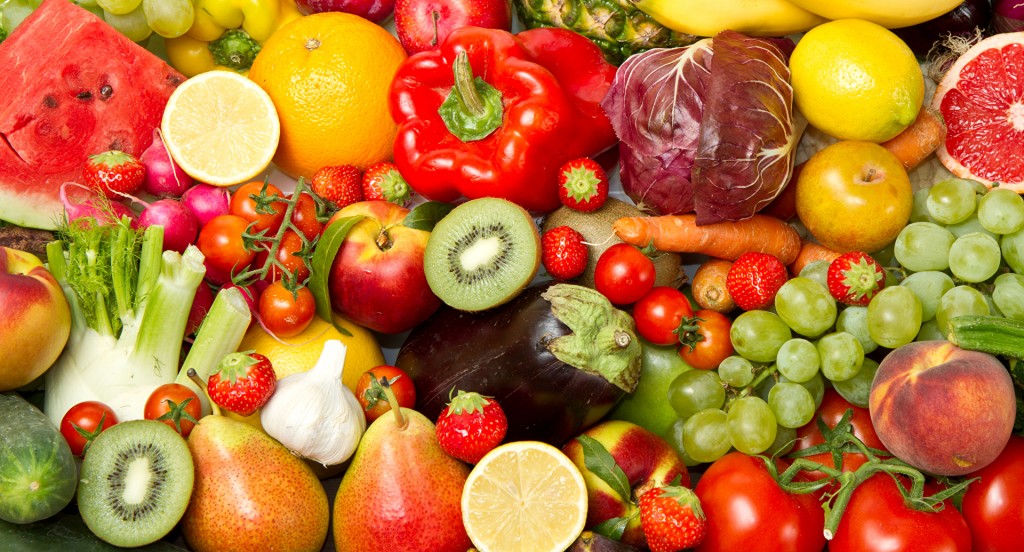The manner agricultural products are cultivated and processed is called “organic.” While rules differ from nation to nation, in the United States, organic crops must be grown without synthetic fertilizers, pesticides, herbicides, or fertilizers and without using bioengineered genes (GMOs).
Organic feed and forage must be used to rear animals raised for meat, eggs, and dairy products in environments that support their natural behaviors (such as the capacity to graze on pasture). In addition, they are prohibited from getting animal byproducts, growth hormones, or antibiotics.
What is Organic Food?
Foods grown organically frequently include more healthy ingredients, such as antioxidants than traditional food. In addition, those allergic to foods and drinks, chemicals, or preservatives may discover that their symptoms reduce or disappear when they eat only organic foods.
Some research suggests that organic foods may provide health benefits compared to conventionally cultivated ones. These studies have revealed disparities in food. However, limited evidence demonstrates how these distinctions can provide potential health benefits.
What Are Its Benefits?
Nutrients: According to studies, organic produce has a minor to moderate increase in some nutrients. In addition, certain antioxidants and flavonoids, which have antioxidant characteristics, may be present in higher concentrations in organic vegetables.
Omega 3 Fatty Acids: Omega-3 fatty acid levels are typically greater in organic farm animals due to their dietary needs. In addition, a type of fat called omega-3 fatty acids is better for your heart than other fats. Therefore, organic meats, dairy products, and eggs contain higher omega-3 fatty acids.
Toxic Metal: A poisonous substance called cadmium is naturally present in soils and is taken up by plants. According to studies, conventionally grown fruits and vegetables do not have considerably lower levels of cadmium than organically grown grains. The lower cadmium levels in organic wheat may be because synthetic fertilizers are not permitted in organic production.
Pesticide Residue: Organically cultivated vegetables contain less pesticide residue than conventionally grown produce. The safety guidelines for the maximum residue levels allowed on conventional produce have changed. The classes have been reduced in several cases. Organic produce may contain pesticide residue from pesticides permitted for organic cultivation or airborne pesticides from conventional farms.
Bacteria: Meats prepared using traditional methods may have greater levels of harmful bacteria that cannot be treated with antibiotics. The overall risk of bacterial contamination of organic foods is the same as that of conventional foods.
Some Other Benefits Are:
Organic food is typically fresher because it doesn’t contain preservatives that give it longer shelf life. In addition, on smaller farms closer to the point of sale, organic produce is occasionally grown.
The environment benefits more from organic farming. Organic agricultural methods may utilize less energy, less pollution, and less soil erosion while increasing soil fertility. In addition, it is better for surrounding birds, animals, and residents who live adjacent to farms without synthetic pesticides.
Animal byproducts, growth hormones, or antibiotics are never provided to animals raised organically. This is because the danger of mad cow disease (BSE) is increased when providing animals with animal wastes. Furthermore, using antibiotics can result in bacterial strains resistant to such drugs. In addition, animals grown organically typically have more incredible room to roam and access nature, which helps keep them healthy.
Organic food is devoid of GMOs. Foods that have been genetically engineered or produced by genetically modified organisms (GMOs) are plants whose DNA has been altered in ways that are not possible or through conventional crossbreeding, most frequently to make them resistant to pesticides or produce an insecticide.
The Organic Food List Which Matters:
According to the Environmental Working Group, the following fruits and vegetables are best purchased organically since they have the greatest levels of pesticides. This nonprofit group examines the findings of government pesticide testing in the United States:
- Apples
- Sweet Bell Peppers
- Cucumbers
- Celery
- Potatoes
- Grapes
- Cherry Tomatoes
- Kale/Collard Greens
- Summer Squash
- Nectarines (imported)
- Peaches
- Spinach
- Strawberries
- Hot Peppers
The Organic Food List Where The Label Does Not Matter:
These conventionally cultivated fruits and vegetables, also known as the “Clean 15,” have typically little pesticide content:
- Asparagus
- Avocado
- Mushrooms
- Cabbage
- Sweet Corn
- Eggplant
- Kiwi
- Mango
- Onion
- Papaya
- Pineapple
- Sweet Peas (frozen)
- Sweet Potatoes
- Grapefruit
- Cantaloupe
What About Dairy and Animal Products?
Animals produced industrially in the United States may be given antibiotics, animal byproducts, growth hormones, pesticides, cereals, corn, and sewage sludge, in addition to other feed ingredients. As a result, both the animals and people who consume their meat, eggs, or milk may suffer health effects from these actions.
Look for beef and dairy products branded “pasture reared” or “100% grass-fed,” if you can afford to pay the additional rates. Also, look for a “certified organic” label on products like pig, chicken, or eggs. You might discover that you can eat organic without going over your food budget if you purchase cheaper cuts of meat from organically grown animals. For example, consider buying organic chicken thighs instead of chicken breasts raised conventionally.
Conclusion
Although it is not widely discussed, organic food has dramatically influenced culture. The method used to grow food significantly impacts the food’s quality. Since organic food is raised naturally, the outcomes are positive and healthy. However, such food is more expensive due to the extra time, care, and effort required.
Organic food has many advantages, including increasing energy levels, strengthening the immune system, and promoting overall wellness.
Author – Vivek is an entrepreneur and business owner at https://www.lifestyleinfinityblog.com/. Establishing a trustworthy relationship and a lifestyle community across the world.
